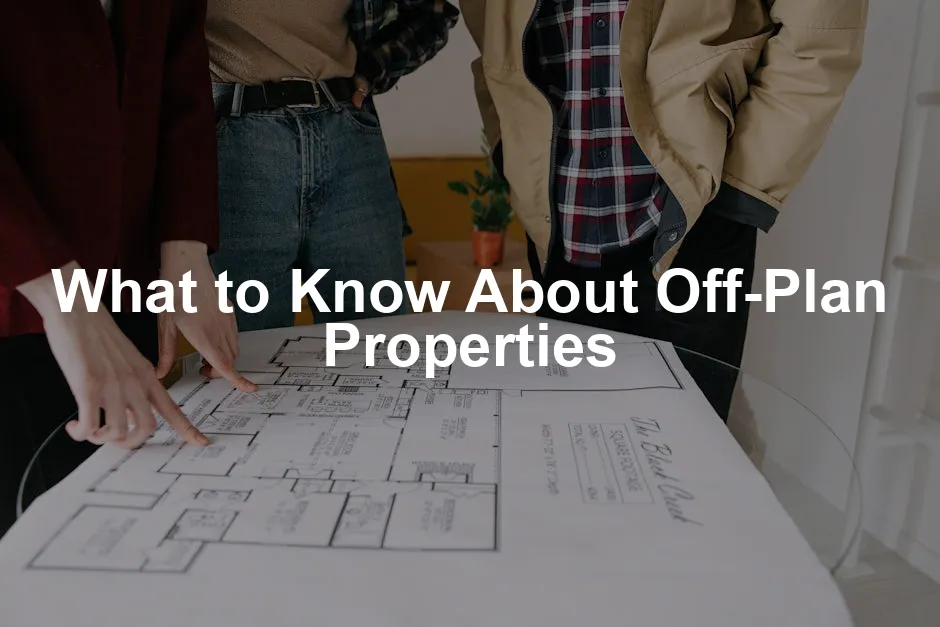Introduction
Are you considering investing in real estate? Off-plan properties are gaining traction in today’s market. These investments involve purchasing a property before it is constructed. While they can offer great rewards, they also come with risks. This article will guide you through essential information every prospective buyer should know.
Summary and Overview
Off-plan property refers to purchasing real estate that has not yet been built. Buyers often rely on architectural plans and renderings. In recent years, especially after the pandemic, off-plan investments have surged. Many are drawn to the potential for lower prices and capital appreciation. However, investing off-plan can have drawbacks, such as construction delays and market volatility. We will cover key considerations, benefits, risks, and tips to help you make informed decisions.

What is Off-Plan Property?
Off-plan property is a term for real estate sold before construction begins. This approach allows buyers to secure properties at lower prices than completed ones. Developers often market these properties with enticing offers to attract early buyers. In contrast, completed properties are available for immediate occupancy but often come at a premium.
Statistics show a significant rise in off-plan purchases. In Dubai, for example, off-plan transactions made up nearly half of all real estate sales in early 2024. This trend highlights the growing popularity of off-plan investments, making them a noteworthy option in today’s real estate landscape. For more insights, you can explore the Dubai real estate market trends 2024.
Understanding the current market dynamics is crucial for potential investors. Learn more about the Dubai real estate market trends.
Key Topics:
- Definition and Characteristics: Off-plan properties are sold based on plans and not physical structures.
- Marketing Strategies Used by Developers: Developers use various tactics to promote off-plan properties, such as pre-launch events and exclusive discounts.
- Comparison with Existing Properties: Unlike completed properties, off-plan units allow buyers to benefit from potential appreciation before construction ends.
Investing in an off-plan property can be an exciting opportunity. However, it’s crucial to be informed and prepared. This knowledge will empower you to navigate the complexities of off-plan property investments successfully.
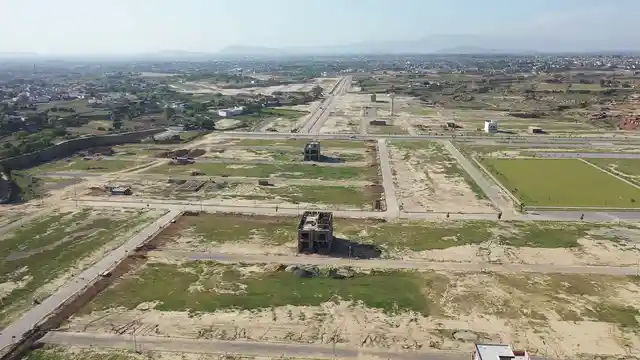
Benefits of Investing in Off-Plan Properties
Investing in off-plan properties offers unique advantages. Let’s break down the key benefits you should consider.
Capital Appreciation Potential
Off-plan properties can appreciate significantly before completion. This means your investment could increase in value while construction progresses. In Dubai, for instance, some areas have seen appreciation rates of up to 25% in just a few years. Early buyers often secure properties at lower prices, making them prime candidates for profit when the market heats up.
Customization Opportunities
One exciting aspect of off-plan properties is the chance to personalize your home. Buyers often have the option to choose finishes, layouts, and other design elements. This customization can enhance both the property’s appeal and its future market value. Imagine picking your favorite kitchen tiles or adjusting room sizes to fit your needs perfectly!
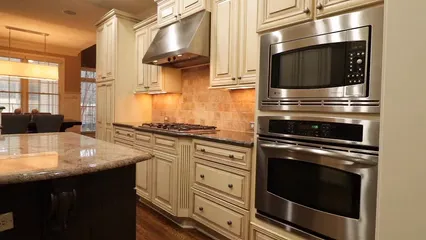
Lower Entry Prices
Off-plan properties typically come with lower purchase prices compared to completed homes. Developers often offer these properties at discounted rates to attract early buyers. This means you can enter the market at a more affordable price point. Lower initial costs can set the foundation for future financial growth as property values rise.
Flexible Payment Plans
Most developers provide flexible payment structures for off-plan properties. Instead of a hefty upfront payment, you can often pay in installments as construction progresses. This approach eases financial burdens and helps you manage your budget more effectively. It allows you to secure your investment without straining your finances.
Investing in off-plan properties can be a strategic move for those looking to grow their wealth. With potential for appreciation, customization options, affordable prices, and flexible payment plans, it’s an opportunity worth exploring. If you’re considering entering the Dubai real estate market, Ome Real Estate can help guide you through the process.

Risks of Buying Off-Plan Properties
Construction Delays and Cancellations
One significant risk with off-plan properties is construction delays. These delays can arise from various factors, including supply chain issues or labor shortages. When a project takes longer than expected, it can affect your investment timeline. You might have to wait longer for your property to be completed, delaying potential rental income or resale opportunities. In some cases, projects may even be canceled, leaving buyers in a challenging situation. Always consider these factors when investing off-plan.
Market Volatility
The property market can fluctuate unexpectedly. Prices may rise or fall, impacting your investment returns. If the market experiences a downturn during construction, the value of your off-plan property may decrease. This market volatility can create uncertainty, making it essential to research market trends before committing to an off-plan investment. Understanding the economic landscape can help you make more informed decisions. For a comprehensive guide on market trends, refer to Real estate trends in Dubai for investors.

Market research is vital for making informed decisions. Discover the latest real estate trends in Dubai to enhance your investment strategy.
Developer Reliability
Researching the developer’s reputation is crucial. A developer’s track record and financial stability can significantly influence your investment’s success. If a developer has a history of poor project delivery or financial difficulties, your investment may be at risk. Look for reviews and past projects to gauge reliability. Choosing a reputable developer can provide peace of mind and increase the likelihood of a successful project completion.
Final Product Uncertainty
Investing in off-plan properties comes with the risk of the final product not meeting your expectations. Since you base your purchase on plans and renderings, the finished product may differ from what you imagined. Issues like design changes or lower-quality materials can arise during construction. Always clarify what is included in your purchase and consider including stipulations in your contract to protect your interests.

How to Choose the Right Off-Plan Property
Selecting the right off-plan property requires careful consideration. Start by researching the developer’s reputation and track record. Look for established companies with positive reviews. Next, analyze the location. Areas with strong infrastructure and growth potential tend to yield better returns. Understanding the surrounding amenities, transport links, and future developments can enhance your investment’s value.
Additionally, it’s important to review the purchase contract thoroughly. Seek legal advice to ensure you understand all terms and conditions. Lastly, ensure you have a clear financial plan. Secure financing and understand payment terms to avoid unexpected surprises down the line. By following these steps, you can make a more informed decision when investing in off-plan properties.
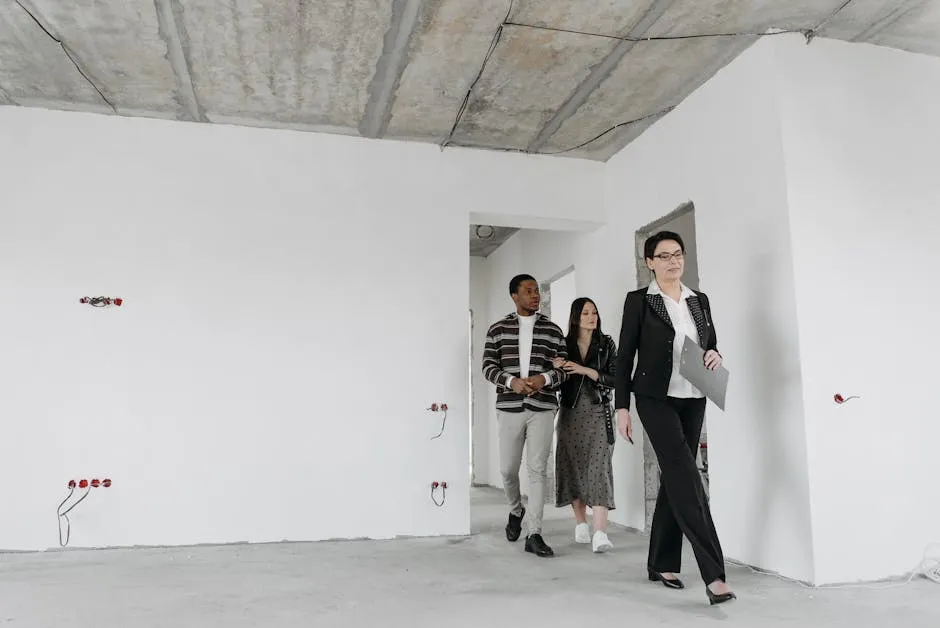
Researching Developers
Before investing in off-plan properties, research the developers thoroughly. Look for their reputation in the market. A well-regarded developer is crucial for your investment’s success. Check their experience and past projects. Have they delivered quality homes on time? Reviews and testimonials can provide insights into their reliability.
Consider visiting completed projects to gauge quality. If possible, talk to previous buyers about their experiences. This research ensures you partner with a trustworthy developer, minimizing risks in your investment.

Location Analysis
Location is everything in real estate, especially for off-plan properties. Research the area’s potential for growth. Proximity to schools, hospitals, and shopping centers can boost your property’s value. Analyze upcoming infrastructure projects, like new roads or public transport. These developments often enhance property desirability.
Understanding the neighborhood’s demographics is also important. Are families moving in? Is there a demand for rental properties? A thriving area can lead to higher returns on your investment, making location analysis essential.
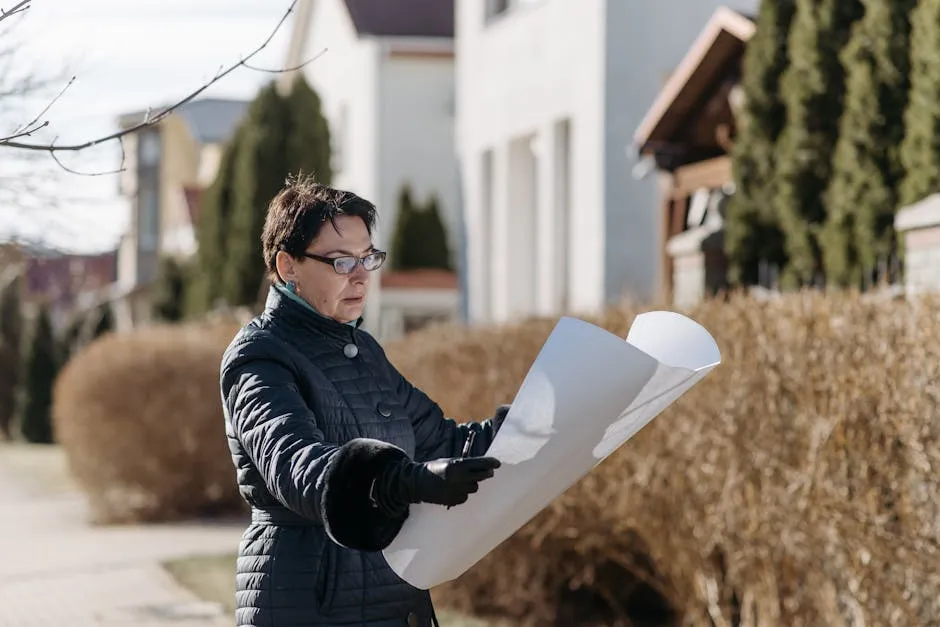
Understanding Contracts
Before signing on the dotted line, understand the purchase contract thoroughly. This document outlines your rights and obligations. Seek legal advice to review the terms. A professional can help clarify any complex clauses. Pay attention to completion dates and penalties for delays.
Ensure the contract includes specifics about the property, such as size, finishes, and amenities. Knowing what you’re entitled to protects your interests. A well-reviewed contract can greatly reduce potential disputes later.

Financial Preparation
Financial readiness is vital when buying off-plan. Start by securing financing early. Many banks offer loans specifically for off-plan purchases. Understanding payment terms is also crucial. Developers typically require a deposit followed by installments during construction.
Be aware of any additional costs, such as registration fees or maintenance charges. Having a clear financial plan helps you avoid surprises down the line. It’s wise to work with a financial advisor who can guide you through the process.

Frequently Asked Questions (FAQs)
Question 1: What is the typical deposit required for off-plan properties?
Typically, a deposit ranges from 10% to 30% of the property price. This amount is paid when signing the purchase agreement. The remaining balance is usually divided into installments, payable throughout the construction period.
Question 2: Are off-plan properties a safe investment?
Off-plan properties can be a safe investment, but they come with risks. To mitigate these, always research the developer’s track record and the location’s potential. Stay informed about the property market trends and ensure all agreements are clear.

Question 3: How long does it usually take for an off-plan property to be completed?
The timeline for completing an off-plan property varies. Generally, it ranges from 12 to 36 months. Several factors influence this duration, including the size of the project, location, and the developer’s efficiency. Larger developments may take longer due to the complexity involved. Local regulations and permits can also impact construction schedules.
Delays can occur, often caused by supply chain issues or labor shortages. It’s wise to ask developers about their past project timelines. This insight helps set realistic expectations for your investment. Keep in mind that construction is dynamic, and timelines can shift.
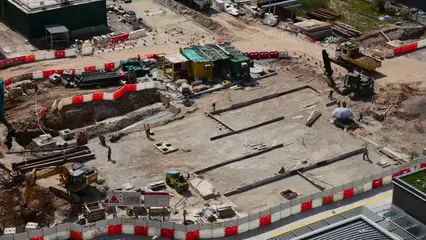
Question 4: Can I sell an off-plan property before it’s completed?
Yes, you can sell an off-plan property before it’s finished. However, the ability to do so depends on the terms in your purchase agreement. Many contracts allow for resale once a certain stage of construction is reached. This can be beneficial in a rising market, allowing you to profit before completion.
Ensure you understand any contractual limitations. Some developers may impose restrictions on selling before completion. Clarifying these terms with your real estate agent and legal advisor is essential. This way, you can make informed decisions about your investment strategy.

Question 5: What should I look for in a developer?
When choosing a developer for your off-plan property, reliability is key. Start by researching their track record. Investigate their history with previous projects. Look for completed developments that align with your expectations.
Financial stability is another crucial factor. A well-financed developer is less likely to encounter issues during construction. Check reviews and testimonials from previous buyers to gauge their reputation.
Additionally, consider the quality of their work. Visiting completed projects can provide valuable insights into their construction standards. A trustworthy developer will also offer clear communication and support throughout the process.
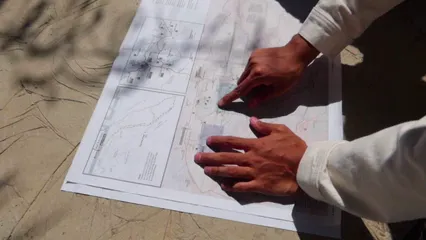
Conclusion
Investing in off-plan properties can be rewarding, but it’s essential to understand the potential benefits and risks. Timelines for completion can vary, and selling before completion is possible but depends on your contract. Choosing a reliable developer is crucial for a successful investment.
Before making any decisions, conduct thorough research and seek professional advice. This preparation will help you navigate the complexities of off-plan investments effectively.
Call to Action
Interested in off-plan property opportunities? Subscribe to our updates for the latest listings and valuable insights. For personalized advice, feel free to contact our real estate professionals at Ome Real Estate. We’re here to help you make informed investment decisions in Dubai’s dynamic market!
Please let us know what you think about our content by leaving a comment down below!
Thank you for reading till here 🙂
All images from Pexels

